After completing the Binocular Vision Course you will be able to know about: Binocular Single Vision & Visual Field, Components of Binocular Vision, Extra-Ocular Muscles, Tests for Binocular Vision Assessment, Anomalies Affecting Binocular Vision, Strabismus, Esotropia, Accommodation and Its anomalies, Convergence and Its anomalies and many more.
Binocular Vision Course Details:
- Course Name: Binocular Single Vision
- Duration: 1 Years
- Price: 499Rs only
- App Name: Optometry Notes & MCQs
- App Link: https://play.google.com/store/apps/details?id=co.robin.osvlt
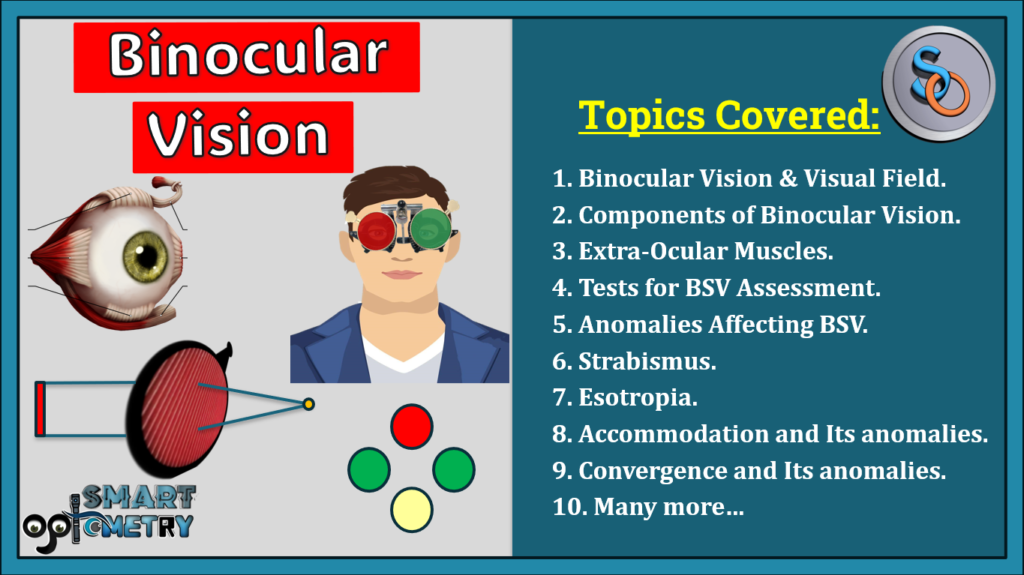
Other Courses: Ophthalmic Instrumentation, Clinical Refraction, Contact Lens, Binocular Vision, Dispensing Optics, MCQs in Optometry
Materials Available in Binocular Vision Course:
1. Introduction of Binocular Vision
PDF-1: Why do we have two Eyes?
- Why are eyes an important sense organ for us ?
- Why do we need two eyes?
- What are the benefits of having two eyes?
- Demonstration of Two Eyes see slightly Different.
- Why do we not have More than Two Eyes?
PDF-2: Binocular Single Vision & Visual Field:
- Types of Vision.
- Visual Field and tis types.
- Extend of visual field.
- Temporal Crescent.
- Visual Field of Different Species.
- Side vs Front facing eyes.
- Why do we not have 3 eyes?
2. Components of Binocular Vision
PDF-3: Visual Direction.
- Visual Direction.
- Primary Visual Direction.
- Oculocentric Visual Direction.
- Egocentric Visual Direction.
PDF-4: Corresponding Retinal Points
- Introduction of Corresponding Retinal Points.
- Corresponding Retinal Points.
- Non-corresponding Retinal Points.
- Ray Diagram of Corresponding Retinal Points.
PDF-5: Cyclopean Eye
- Introduction of Cyclopean Eye.
- Cyclopean eye vs Strabismus.
- Cyclopean eye vs Crossed Diplopia.
- Cyclopean eye vs Uncrossed Diplopia.
PDF-6: Horopter Vs Punam’s Area
- Introduction Horopter.
- Introduction of Punam’s Area
- The Vieth-Muller circle.
- The Empirical h=Horopter.
PDF-7: Development of Binocular Vision
- Introduction of Development.
- Physiological Factors.
- Postural Reflexes.
- Fixation Reflexes.
PDF-8: Grades of Binocular Vision
- Introduction of Grades of Binocular Vision.
- Simultaneous Macular Perception.
- Fusion.
- Stereopsis.
- Local Stereopsis.
- Global Stereopsis.
3. Extra-Ocular Muscles:
PDF-9: Extra-Ocular Muscles: Anatomy & Physiology.
- Introduction of Orbital muscle.
- Intraocular Vs Extraocular Muscle.
- Levator Palpebral Superioris.
- Medial Rectus: Origin, Insertion, Blood Supply & Nerve Supply.
- Lateral Rectus: Origin, Insertion, Blood Supply & Nerve Supply.
- Superior Rectus: Origin, Insertion, Blood Supply & Nerve Supply.
- Inferior Rectus: Origin, Insertion, Blood Supply & Nerve Supply.
- Actions of Extraocular Muscles.
PDF-10: Ocular Motility: Monocular & Binocular
- Table of Ocular Movements.
- Monocular Ocular Movements.
- Ductions Movements.
- Binocular Ocular Movements.
- Versions Movements.
- Vergence Movements.
- Saccadic Movements.
- Pursuits Movements.
PDF-11: Laws of Ocular Motility
- Introduction of Laws of Ocular Motility.
- Donders Law
- Listing’s Law
- Sherrington’s law
- Hering’s Law.
PDF-12: Ocular Motility Test
- Introduction of Ocular Motility Test.
- Procedure of Ocular Motility Test.
- What to observe during the test.
- Interpretation of Ocular Motility Test.
4. Tests for Binocular Vision Assessment:
a. Tests for Simultaneous Macular Perception:
PDF-13: Bagolini’s Striated Glass & Red Filter Test.
- Introduction of tests.
- Bagolini’s Striated Glass Test.
- Red Filter Test.
b. Tests for Fusion:
PDF-14: Worth 4 Dot Tests:
- Introduction of Worth Four Dot Test.
- Methods of Worth Four Dot Test.
- Requirements for W4DT.
- Procedure of Worth Four Dot Test.
- Interpretation Worth Four Dot Test.
PDF-15: Bagolini’s Striated Glass.
- Introduction of tests.
- Bagolini’s Striated Glass Test.
- Interpretation of Bagolini’s Striated Glass Test
c. Tests for Stereopsis:
PDF-17: Tests for Stereopsis.
- Introduction tests for Stereopsis.
- Titmus Fly Test.
- Titmus Animal Tests.
- Titmus Circle Test.
- Random Dot Stereo Test.
- TNO random dot Test.
- Lang Test.
- Frisby Test.
- Two Pencil Test.
5. Anomalies Affecting Binocular Vision.
6. Strabismus:
- Introduction & Classification.
- Strabismus Assessment.
- Tests for Strabismus Assessment:
- Krimsky & Modified Krimsky Test.
- Maddox Rod Test.
- Ocular Motility Test.
- Bruckner Test.
- Hirschberg Test.
- Cover Test.
8. Esotropia:
- Stages & Classifications.
- Infantile or Congenital Esotropia.
- Accommodative Esotropia.
9. Accommodation and Its anomalies:
- Assessment Accommodation
- Accommodation Insufficiency
- Accommodation Inertia
- Ill Sustain Accommodation
- Paralysis of Accommodation
- Excessive Accommodation
- Spasm of Accommodation
10. Convergence and Its anomalies:
- Convergence- An overview
- Assessment of Convergence
- Convergence Insufficiency
- Convergence Paralysis
- Convergence Spasm
How to Get the Binocular Vision Course:
Download our App “Optometry Notes & MCQs” from Google Play Store –> Then Register with your Mobile Number & Email –> Then go to STORE & Click on the Course “Binocular Single Vision” –> Then scroll down & Click on Buy –> After payment you will get access to all the Materials.
Note: All the materials are non-downloadable & non-sharable. You can access the materials only through this app & only with with Android Devices.
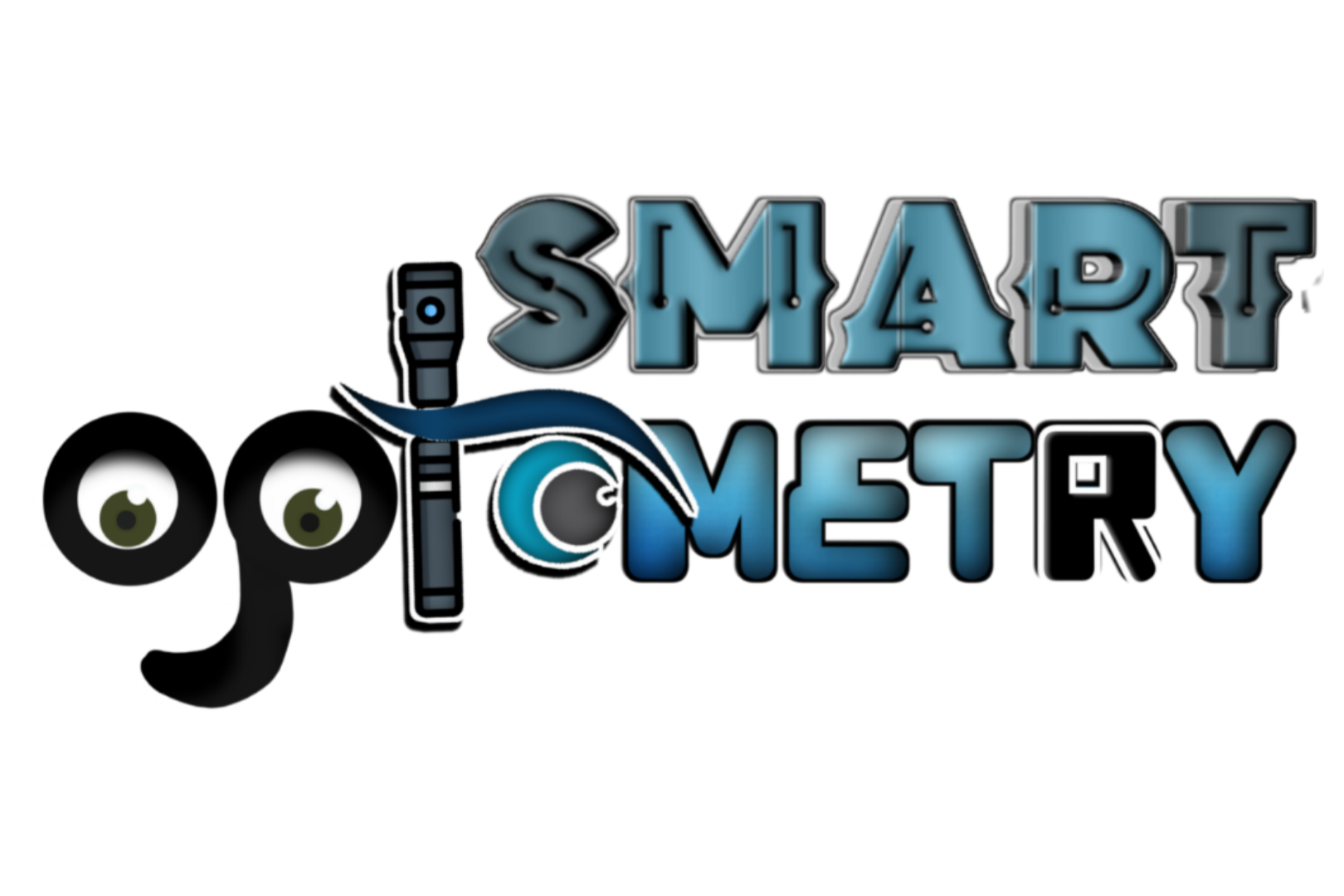
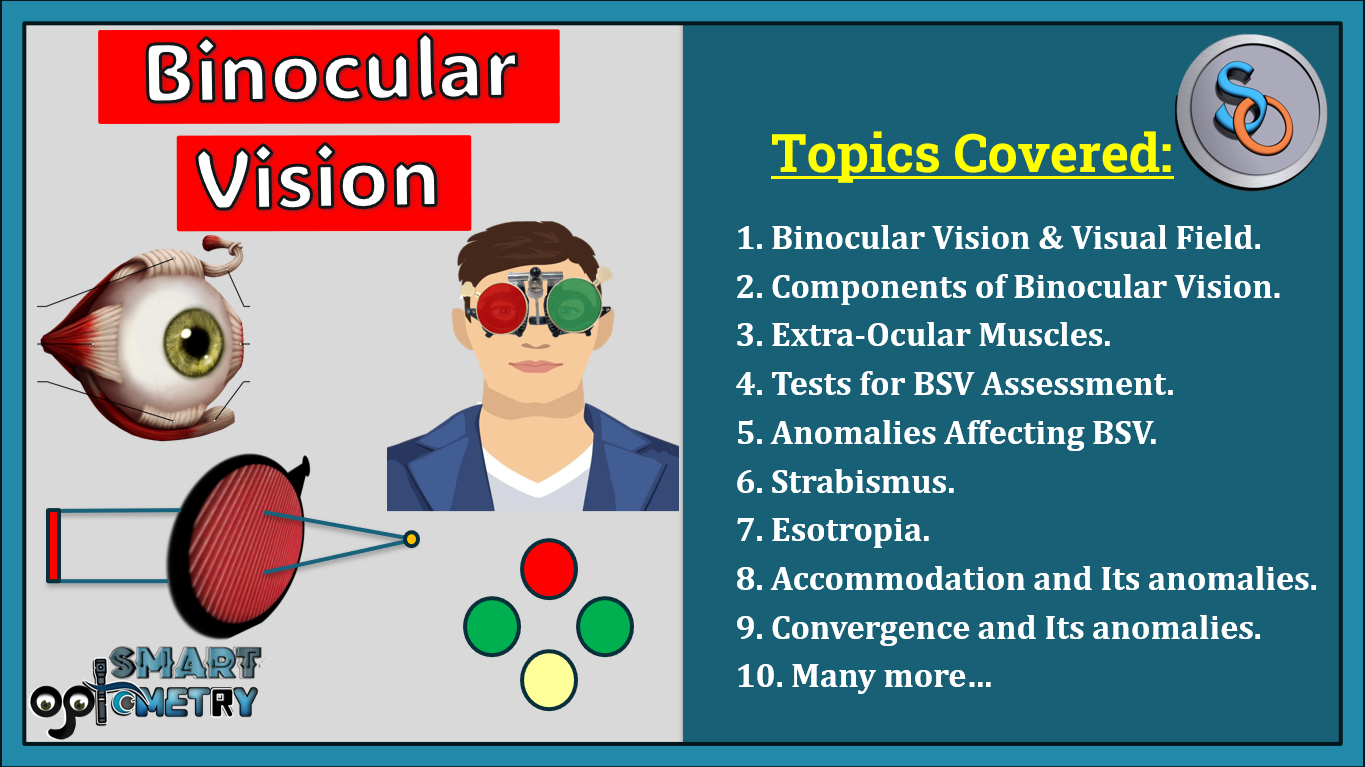
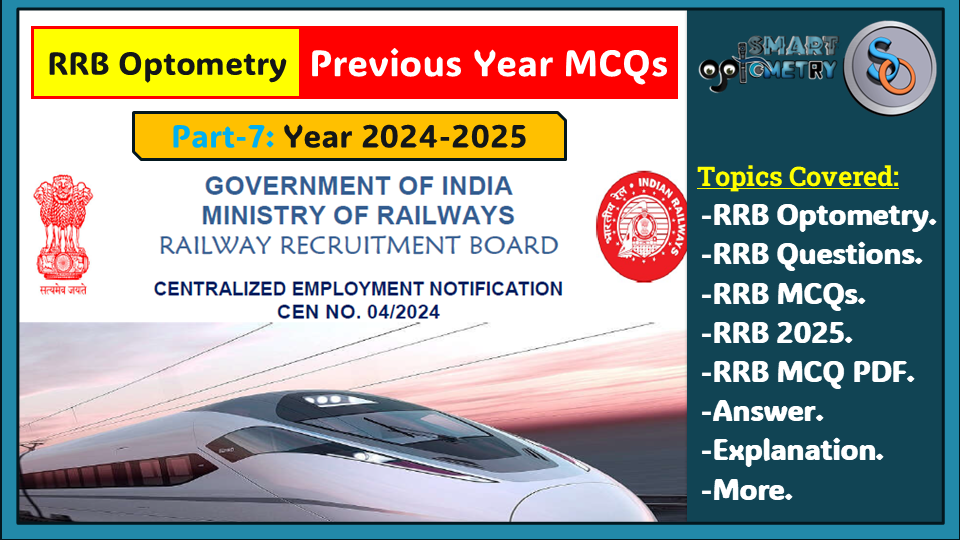
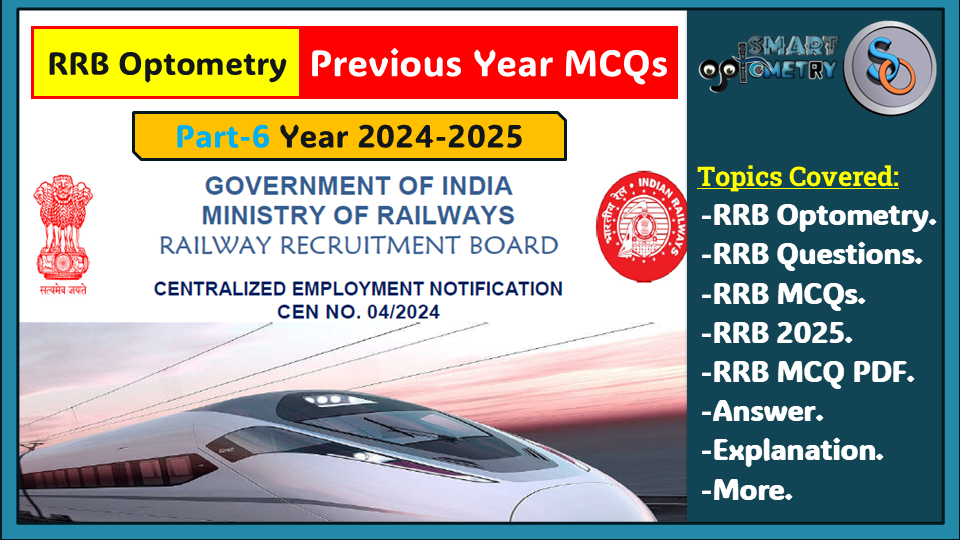
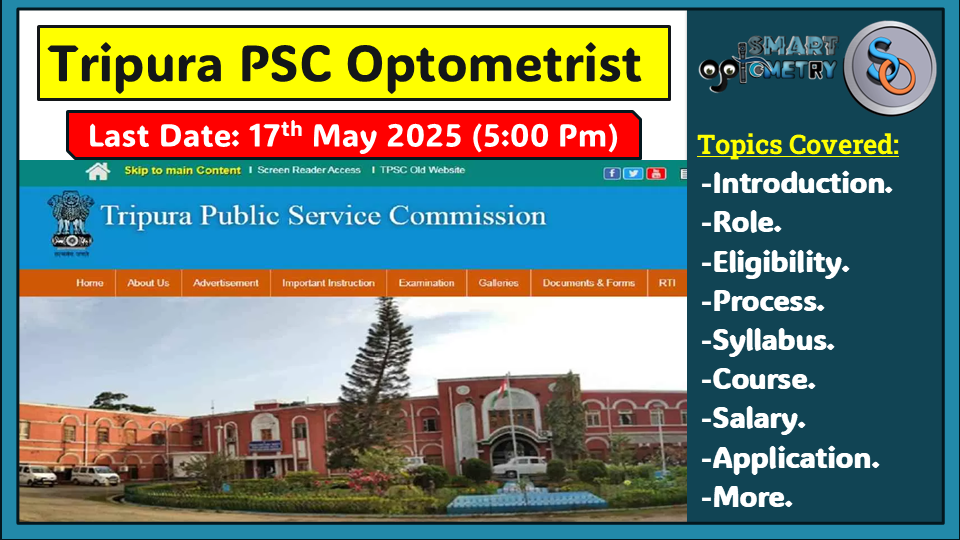
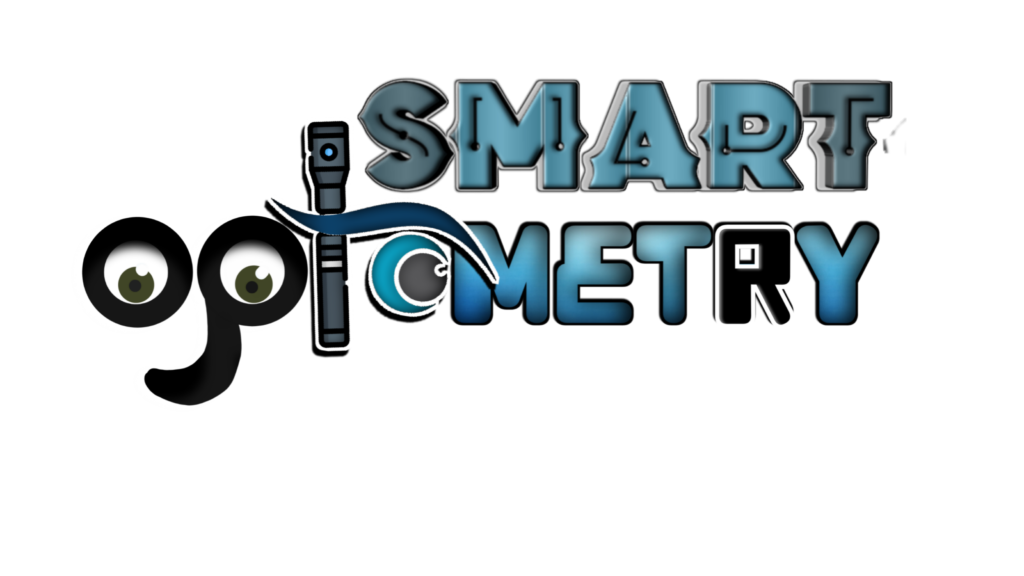
1 Comment
Binocular field of vision